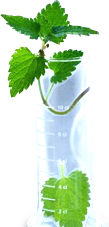



Author(s): Ramteke Ashok D, Aiyer Rajesh B, Gandhi Sonali P, Hadole Shrikant P.
Infectious hepatitis is a highly contagious disease that attacks hepatocytes of liver. Tens of millions of individuals worldwide are estimated to become infected with hepatitis each year. In modern medical sciences there is no conventional line of treatment regarding hepatitis. In Ayurveda, Daruharidra (Berberis aristata DC) is natural source of Berberine which reduces the inflammation of hepatocytes in liver. It has properties like cholegogue, astringent, hepato-stimulant and hepato-protective. Open labeled study was done on 30 patients at Ayurved Mahavidyalaya Sion, Mumbai, India. Daruharidra kwath 30 ml bd was given to the patients for duration of 30 days. Weekly assessment was done on the basis of signs and symptoms like Haridra netrata (yellow sclera), Pita tvak (yellowish discolouration of skin), Pita mutrata (yellow urination), Aruci (anorexia), Hrullasa (nausea), Chhardi (vomiting), Sadan (loss of appetite), Jvar (fever), Udarashula (pain in abdomen), Kandu (Pruritus), Yakrita-vruddi (Hepatomegaly), Daurbalya (Malaise), Daha (burning sensation). Objective improvement was done on the basis of reduction in serum bilirubin, SGOT and SGPT count at initial and then after 30 days, urine test for bile salt, bile pigment was done weekly. Statistical analysis was done by applying unpaired t-test to objective parameters at baseline and at the end of study (after 30 days). Subjective improvement is shown in percentage. The observations were found to be significant. It was observed that all patients were markedly improved i.e. there improvement in signs and symptoms was 71.47 %. Unpaired t test was found to be highly significant at 1 % level of significance i.e. p < 0.01.